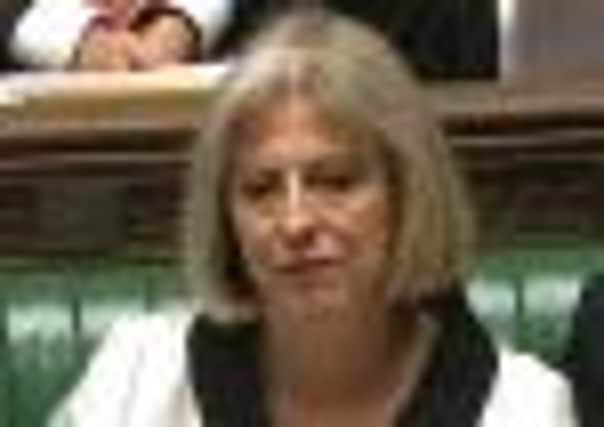David Blunkett: Unanswered questions for May as civil servant refuses to quietly take blame


As we used to reflect in private conversations between ministers ever since taking office in 1997, the grave-digger could often be an aggrieved senior civil servant. While Brodie Clark may not wish to be described in such graphic terms, his resignation, which allows him to speak out, is a twist in what is rapidly becoming yet another saga in the history of the Home Office, and of Home Secretaries and their ministers.
The phrase “people in glass houses shouldn’t throw stones” comes to mind. And I am mindful of it, reflecting on the situation facing the current Home Secretary Theresa May. So, however, should be those on the Government benches who were very quick indeed to wield the dagger on previous Immigration Ministers and, in the case of Charles Clarke, on the Home Secretary himself. As Theresa May said on the resignation of a previous Immigration Minister back in 2004, “I’m sick and tired of government ministers in this Labour government who simply blame other people when things go wrong.”
Advertisement
Hide AdAdvertisement
Hide AdThe truth is that it is the truth itself that is difficult to reach. Part of the reason for this is the complexity of dealing with around 100 million people a year who, in one way or another, transit into or out of the United Kingdom, or pass through our airports. Partly because historically we have been the hub of trade and people movements, and also because London is the most metropolitan city on the globe.
There is, however, something fundamental in respect of the way in which, in recent years, handling of immigration and border controls have gone so badly awry.
In the past, of course, we simply did not know who was coming in and out because historic passport authentication was virtually non-existent, as anyone who has read or seen the film of The Day of the Jackal will know. Clandestine entry into the country, and with it illegal working, was historically rife. When, as Home Secretary, I introduced a register and provided for legal employment for those citizens of countries joining the European Union for the first time in May 2004, 40 per cent of those who came forward to register for work were already in the country!
My frustration in trying to balance legal economic migration with tough policies to secure our borders and prevent unwarranted and unauthorised entry was driven by an unholy combination of administrative incompetence going back decades, and a political culture whereby immigration was one of the least favourite areas for investing resources – but the most likely to implode if your eye was taken off the ball.
Advertisement
Hide AdAdvertisement
Hide AdThe present dilemma appears to come from a combination of factors. Substantial cutbacks in the Border Force as part of the 6,600 reduction in the UK Border Agency staffing. Enormous pressure on staff at key airports and, in particular, Heathrow over the summer, which should of course have been highly predictable. And yes, a pilot programme for easing checks, which I’m sure was introduced with the best possible intentions by Theresa May and her Immigration Minister Damien Green, but which appear now to have had no procedures for monitoring and reporting back. Certainly if ministers claim they “didn’t know” what was going on, this must self-evidently be the case.
The defence of “I did not know” has never been terribly impressive in politics. Normally there will be some sympathy, as how on earth can ministers know everything, or even know which questions they ought to be asking? This is not, however, the case if you are responsible for changing policy and introducing a system which you know will be controversial – so controversial that you have not actually announced it. And, it would appear, had not told the Prime Minister.
Until the inquiry established into what happened has reported back, we will not get anywhere near knowing whether Theresa May is right to dump the blame on Brodie Clark, the head of the Border Force, and other officials. The one thing I was never accused of was blaming my own officials at a time of crisis, although I certainly questioned publicly as well as privately the competence and proper training of substantial swathes of the civil service. As far as I am aware, no civil servant ever knowingly disobeyed my instructions, and the loyal and competent people I had around me would have alerted me if they feared such an eventuality.
So, like the rest of the United Kingdom, I am left bewildered, with many questions unanswered. After all, this was supposed to be one of the Government’s own key priorities. They are the ones who have set a target of reducing net migration to 100,000, and paradoxically, were attempting, so we are led to believe in this experiment, to focus resources on the greatest threat! With so many questions over who may or may not have entered the country, and their status in terms of security, this now looks a more than optimistic claim.
Advertisement
Hide AdAdvertisement
Hide AdYesterday in the Commons we saw again the understandable tribal loyalty, particularly from the backbench Conservative ranks. But as I’m painfully aware, bravura performances in politics can so easily be followed by support disappearing like snow melting between your fingers. At the present moment Brodie Clark is a sacrificial lamb. Who knows in the days ahead whether Theresa May will find the tables turned, and her plea of ignorance rejected in favour of guilt through political responsibility. The jury, as they say, is out.
David Blunkett is a former Home Secretary and the MP for Sheffield Brightside and Hillsborough.